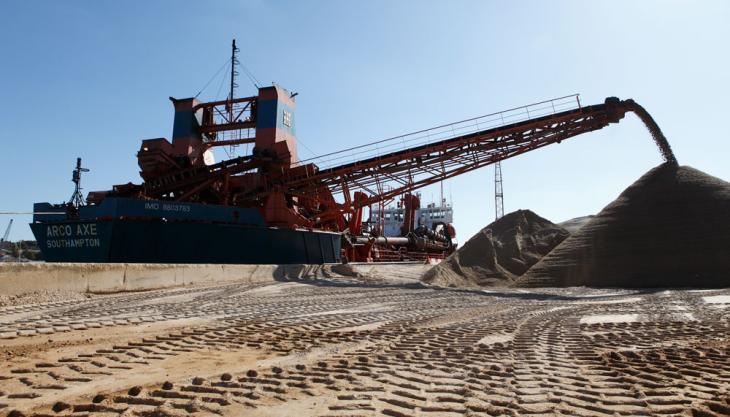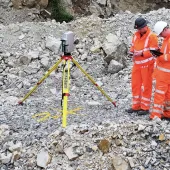MPA highlights threats to wharves and depots

Association calls on new London Mayor to safeguard mineral infrastructure from other development
NEW London Mayor Sadiq Khan has made housing his top priority, but as the Mineral Products Association (MPA) has highlighted, the delivery of much-needed new housing and infrastructure depends on a steady and adequate supply of construction aggregates and other essential mineral products, such as concrete blocks and mortar.
London’s wharves and rail depots play a key role in this, allowing the sustainable supply of bulk materials by rail and ship, delivering close to the market, and significantly reducing lorry movements, congestion and pollution on city streets.
Marine aggregates and imported crushed rock make an important and growing sustainable contribution to overall supply, which is recognized in national planning policy that requires aggregate wharves and other mineral infrastructure to be ‘safeguarded’ from other development, to provide for long-term security.
In London alone, in 2014 more than 4 million tonnes of marine-dredged sand and gravel, and 700,000 tonnes of crushed rock, were landed at London wharves – equivalent to more than 600 lorry loads being delivered via the river Thames every single day. Marine-dredged sand and gravel contribute one third of all the aggregates consumed in the capital.
In a number of areas, however, notably London and along the South coast, wharves are coming under increasing pressure from housing and commercial development.
The MPA has recently raised these concerns with both the outgoing Mayor of London, Boris Johnson, and Greenwich Council. In London, the outgoing Mayor’s new plan for the Royal Docks and Beckton proposes housing on or very close to a number of wharf sites, where it is proposed to relocate and consolidate marine aggregate activities, whilst in Greenwich, high-density housing has been built adjacent to wharves, with much more planned.
Housing and aggregate wharves are generally not compatible, as housing will be sensitive to noise generated by 24-hour operations with ships unloading and material being processed when tides allow. However, the relocation of wharves is not straightforward either, as they have specific requirements of sufficient water depth, good transport links and space for unloading and processing materials. And the MPA warns that ‘consolidation’ could also affect competition and, ultimately, prices.
Mark Russell, the MPA’s executive director of planning, mineral resources and the British Marine Aggregate Producers Association (BMAPA), said: ‘While the need for new homes is clear, this has to be planned properly so that essential mineral infrastructure needed to underpin long-term growth and development aspirations is also protected.
‘The MPA has, therefore, called for the plan for East London to be revisited, to properly provide safeguarding of minerals infrastructure along the river Thames and protect the sustainable, steady and adequate supply of aggregate materials that are required to support the economy and society. All this needs to be joined up with housing and construction ambitions for London,’ he said.









